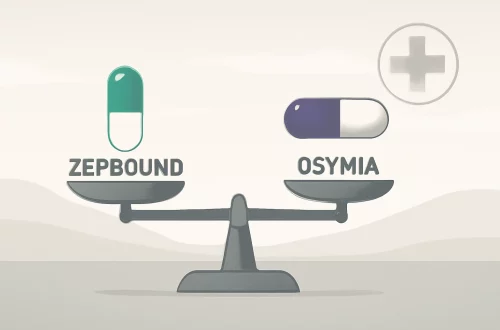
Can You Take Creatine Without Working Out for Better Results?
When it comes to fitness and supplementation, creatine stands out as one of the most popular and studied performance enhancers. Athletes and fitness enthusiasts often turn to creatine to boost their energy levels, enhance strength, and improve recovery times during training sessions. However, a question arises: can taking creatine yield benefits even if one is not actively working out? This inquiry leads us into an exploration of how creatine operates within the body, its potential benefits outside of rigorous exercise, and the implications of its use in a non-active lifestyle.
Creatine is a naturally occurring compound that plays a crucial role in the production of adenosine triphosphate (ATP), the primary energy currency of cells. Typically, it is synthesized in the body from amino acids and is stored predominantly in the muscles. The allure of creatine supplementation lies in its ability to enhance physical performance during high-intensity activities, but its effects may extend beyond the gym. Understanding the nuances of creatine supplementation, especially in the context of a sedentary lifestyle, can offer valuable insights for those considering its use for various health or performance goals.
As we delve deeper into the multifaceted nature of creatine, we will uncover the potential benefits it offers, even in the absence of regular workout routines, and determine whether it can be a valuable addition to your dietary regimen.
Understanding Creatine: The Basics
Creatine is a compound that is naturally found in foods such as red meat and fish, and it is also produced by the body from amino acids. It is primarily stored in muscle tissue, where it plays a key role in generating ATP during high-intensity activities. This is particularly important for activities that require quick bursts of energy, such as sprinting or weight lifting.
When supplemented, creatine increases the available stores of phosphocreatine in the muscles. Phosphocreatine serves as a readily available energy source for ATP production, allowing athletes to perform at a higher intensity for longer periods. This enhancement in energy availability is why creatine is often associated with improved strength, increased muscle mass, and enhanced recovery times.
However, the benefits of creatine aren’t limited to those who engage in intense physical training. Research indicates that creatine may have several health benefits, including neuroprotective properties and potential improvements in cognitive function. These benefits could be particularly relevant for individuals who lead a more sedentary lifestyle or who may not engage in regular exercise.
In addition to its physical performance benefits, creatine has been shown to have potential therapeutic roles. For example, studies suggest that it may assist in the treatment of certain neurological diseases, highlighting its versatility beyond just athletic performance. By enhancing energy metabolism in the brain, creatine supplementation could potentially improve mental clarity and cognitive function, even in the absence of physical exercise.
Thus, understanding the fundamental aspects of creatine opens the door to exploring its broader implications, particularly for those considering its use without a structured workout routine.
The Benefits of Creatine Beyond Exercise
While creatine is primarily known for its role in enhancing athletic performance, its benefits extend to various aspects of health, even for those who do not work out regularly. One key area of interest is its potential cognitive benefits. Research has shown that creatine may enhance cognitive performance, particularly in tasks that require short-term memory and quick thinking. This effect is especially relevant for individuals who may experience mental fatigue or who need to maintain focus during prolonged periods of sedentary activity, such as studying or working.
Additionally, creatine supplementation has been linked to improved mood and reduced symptoms of depression in some studies. This may be due to its role in energy metabolism and neurotransmitter regulation in the brain. For those who may not engage in physical activity but are looking to support their mental health, creatine could serve as a beneficial addition to their supplement regimen.
Furthermore, creatine has been studied for its potential protective effects against certain neurological disorders. Research suggests that it may help in conditions such as Alzheimer’s disease and Parkinson’s disease by providing the brain with additional energy and potentially slowing the progression of these conditions. This neuroprotective effect makes creatine a compelling option for individuals seeking to enhance their brain health, regardless of their physical activity levels.
Moreover, creatine’s role in muscle maintenance cannot be overlooked. Even in a non-active individual, maintaining muscle mass is crucial for overall health, particularly as one ages. Creatine supplementation can aid in preserving muscle tissue and preventing muscle loss, which is particularly important for older adults or those with limited mobility. By supporting muscle integrity, creatine may contribute to a better quality of life, even without regular exercise.
In summary, the benefits of creatine extend beyond the gym, offering potential cognitive, mood-enhancing, and neuroprotective advantages for individuals who may not engage in regular physical activity.
How to Incorporate Creatine into Your Diet
If you are considering adding creatine to your dietary regimen, it’s essential to understand how to do so effectively. Creatine is available in various forms, including powder, capsules, and even in some protein blends. The most common and researched form is creatine monohydrate, which has been shown to be effective and safe for most individuals.
When starting creatine supplementation, the typical approach involves a loading phase followed by a maintenance phase. During the loading phase, individuals often take approximately 20 grams of creatine per day, divided into four doses, for about five to seven days. This strategy saturates the muscles with creatine quickly. After this period, the maintenance dose usually drops to around 3 to 5 grams per day.
It is important to consume creatine with sufficient fluids, as it draws water into the muscle cells. Staying well-hydrated can help maximize the benefits of creatine and minimize any potential gastrointestinal discomfort. Additionally, taking creatine with a carbohydrate source may enhance its absorption, as insulin helps shuttle creatine into muscle cells more effectively.
For those who are concerned about the potential side effects of creatine, it is generally considered safe for most individuals when used as directed. Some may experience mild gastrointestinal issues or water retention, but these effects can often be mitigated by adjusting the dosage or ensuring proper hydration.
As always, if you have any pre-existing health conditions or concerns, it’s wise to consult with a healthcare professional before starting any new supplement regimen. Creatine can interact with certain medications or conditions, and personalized advice from a healthcare provider can help ensure safety and efficacy.
Incorporating creatine into your diet can be a straightforward process, but understanding the correct dosages and methods of consumption is key to reaping its potential benefits.
Potential Risks and Considerations
While creatine supplementation is widely regarded as safe for most individuals, there are some potential risks and considerations to be aware of. Firstly, it is essential to recognize that not everyone responds to creatine supplementation in the same way. Some individuals may experience significant benefits, while others may see little to no effect. This variability can be influenced by factors such as diet, body composition, and genetic predispositions.
Another consideration is the possibility of dehydration. Since creatine draws water into the muscle cells, it can lead to a temporary increase in body weight due to water retention. It is crucial to maintain adequate hydration, especially when starting supplementation, to avoid any adverse effects related to dehydration.
Individuals with pre-existing kidney conditions should exercise caution when considering creatine supplementation. While research has not conclusively shown that creatine is harmful to healthy kidneys, those with compromised kidney function may be at risk, as creatine is processed through the kidneys. Consulting with a healthcare professional is advisable in such cases.
Additionally, the timing of creatine intake may play a role in its effectiveness. While many people take creatine at various times throughout the day, some studies suggest that post-workout consumption may enhance its benefits, particularly when combined with carbohydrates and protein.
Lastly, it is vital to purchase creatine from reputable sources to ensure quality and purity. Supplements can vary in their formulations, and choosing a well-known brand can help mitigate the risk of contaminants or ineffective products.
In conclusion, while creatine can offer numerous benefits, especially for those engaged in physical activity, it is essential to approach supplementation with a well-informed perspective, considering individual health conditions and hydration needs.
—
**Disclaimer:** This article is for informational purposes only and does not constitute medical advice. Always consult a healthcare professional before starting any new supplement, especially if you have health concerns or pre-existing conditions.




